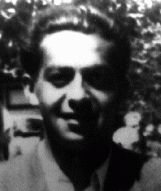<< Previous | Displaying results 331-340 of 6707 for "" | Next >>
-
Chaja Kozlowski
ID CardChaja was the eldest of four children born to a middle-class Jewish family in the northeastern Polish town of Iwie. Her father earned his living as a blacksmith. Chaja first went to a private Jewish school that taught both religious and secular subjects; in the fourth grade she transferred to a public school, and also attended Hebrew school in the afternoon. 1933-39: Chaja belonged to one of the Zionist youth organizations in Iwie. They heard lectures, often on Palestine [Yishuv], and had many sporting…
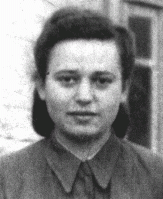
-
Henryk Lubelski
ID CardHenryk was raised in a religious Jewish family. His father was a cantor, and his parents placed an emphasis on education. In 1916 the Lubelskis moved to Rawicz, a town in German-occupied Poland. Henryk was first in his class in secondary school, where he also excelled in wrestling and soccer. After graduating, Henryk became an apprentice in a business. 1933-39: In 1935 Henryk's father secured a good position in the city of Katowice. There, Henryk worked in the sausage business. Since Katowice was close to…
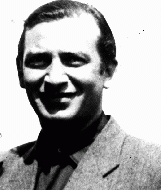
-
Gerda Weissmann
ID CardGerda was born to a Jewish middle-class family in Bielsko, Poland, a town noted for its textile industry. She began her education in Polish public school, but later entered a Catholic girls school. A rabbi was permitted to come into the school and instruct the Jewish students in religious studies. 1933-39: On Friday, September 1, 1939, German fighter planes appeared overhead, causing many people to flee the city. Gerda's family remained and lived through the intense shelling that followed on Sunday…
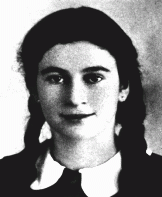
-
Selma Wijnberg
ID CardSelma was the youngest of the Wijnberg's four children, and the only daughter. When she was 7, her family left Groningen to start a business in the town of Zwolle [in the Netherlands]. There her parents ran a small hotel popular with Jewish businessmen traveling in the area. Every Friday there was a cattle market, and many of the cattle dealers came to the Wijnberg's hotel for coffee and business. 1933-39: At home Selma and her family were observant of Jewish tradition because her mother was religious.…
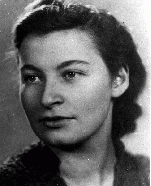
-
Thomas Buergenthal
ID CardThomas Buergenthal was born in May 1934 in the town of Ľubochňa, Czechoslovakia. His parents, Mundek and Gerda, were Jews who had fled the Nazi rise to power in Germany. In Ľubochňa, Mundek ran a hotel that welcomed other refugees and exiles fleeing Nazi persecution. 1933-39: In 1938-1939, Nazi Germany dismantled the country of Czechoslovakia and created the satellite state of Slovakia. As a result, Thomas and his family fled from Slovakia to neighboring Poland. They hoped eventually to immigrate to…
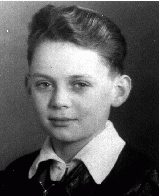
-
Walter Schnell
ID CardWalter was born to a Jewish family in the German town of Strehlen, 25 miles south of Breslau. His family's crystal business was prominent in the town for more than 100 years. Walter's parents sent him to Berlin in the mid-1920s to learn the porcelain trade. He returned to Strehlen in 1926 to help his family run the business. 1933-39: In 1937 Walter's family moved to Breslau. After the German pogroms of 1938 [Kristallnacht, Night of Broken Glass], he was deported to Buchenwald. When he arrived he was…
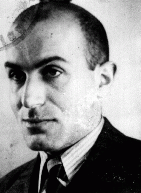
-
Moishe Menyuk
ID CardMoishe was born to a Jewish family in the village of Komarovo, which until 1918 was part of the Russian Empire. At 18, he was drafted into the Russian army and fought in World War I. He was captured by the Germans, and while a POW, learned German. After the war he returned to Komarovo, which by then was part of Poland. He supported his family by farming and managing an estate for a Pole from Warsaw. 1933-39: The few Jews of Komarovo got along well with the Ukrainians. Moishe even played the fiddle at…
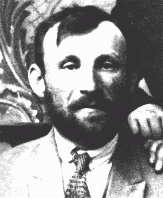
-
Pola Nussbaum
ID CardPola was born to a Jewish family in a small town [in Poland] about three miles from the German border. Her family had lived there for generations. Pola's father exported geese and other goods to Germany; her mother owned a fabric store. They lived with Pola's grandmother in a large, single-level, gray stucco house. Raczki had a small Jewish community with a Hebrew school that Pola attended. 1933-39: In 1937 Pola began secondary school in the town of Suwalki. She excelled in math, and hoped to study…
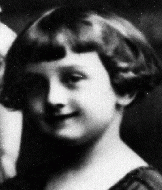
-
Erich Schon
ID CardErich was one of five children born to observant Jewish parents. They lived in Vsetin, a town in Czechoslovakia's Moravia region that straddled the border with Slovakia. Some 70 Jewish families lived in the town of 12,500 persons. There, Erich's family owned a grocery store and operated a sawmill. Erich attended a trade school where he became an expert in lumber and forestry. 1933-39: The Germans kept Erich's family's sawmill operating after they occupied their region in March 1939. Since Erich had a…
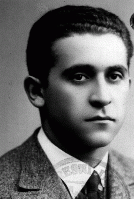
-
Elias (Elya) Grosmann
ID CardElias was born in a small town in the hill country of northeastern Slovakia. His family was Jewish, and he grew up in a religious home in which both Yiddish and Hungarian were spoken. His father was a peddler and his mother ran a small general store. Besides attending public schools, Elias received a formal Jewish education and attended Medzilaborce's rabbinical academy. 1933-39: The townspeople were mostly Jewish and worried about Nazi Germany. The German annexation of Austria in March 1938 alarmed them.…
